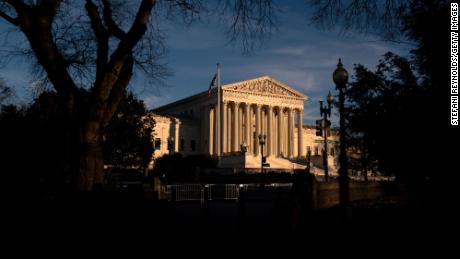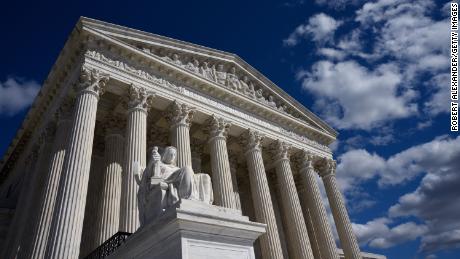This trend came to an abrupt stop on Thursday, with the Court’s decision in Jones v. Mississippi that judges do not need to find a juvenile murderer to have a hope of rehabilitation before sentencing them to die in prison.
Most stunning, however, is the manner in which the Court got there, by casting aside years of precedent with the stroke of a pen. Yesterday’s decision was a frightening reminder of how easily the Court can speak out of both sides of its mouth: claiming fidelity to its own past decisions, while simultaneously gutting them.
Courts are governed by the doctrine of stare decisis, Latin for “to stand by things decided.” In short, stare decisis is the fundamental doctrine that precedent matters, and that a court will stand by its rulings on issues previously brought before it. As the Supreme Court has said, stare decisis “promotes the evenhanded, predictable, and consistent development of legal principles, fosters reliance on judicial decisions, and contributes to the actual and perceived integrity of the judicial process.” Such predictability is critical for helping the public understand what its rights are.
Put another way, in plain language, stare decisis isn’t just a legal expression of if it ain’t broke, don’t fix it, but more like it ain’t broke, and moreover, our role as its stewards demands that we ensure that it be respected and protected.
This basic backdrop makes the court’s decision in Jones so perplexing. Since 2005, a series of Supreme Court rulings have methodically addressed questions of how youths can be sentenced for serious crimes. In 2005, the Court ruled that juveniles cannot be sentenced to death. In 2010, it banned the use of life without parole for juveniles not convicted of homicide. Two years later, it ruled in Miller v. Alabama that mandatory life without parole sentences for minors violate the Eighth Amendment’s ban on cruel and unusual punishment. Finally, in 2016, the Court found that its ruling in Miller could be applied retroactively.
The Court’s decision in Jones broke this pattern in dramatic fashion. In the case, a 6-3 majority, led by Justice Brett Kavanaugh, who wrote for the majority, found that judges need not specifically find a juvenile defendant “permanently incorrigible” — beyond redemption — before sentencing him to life in prison. Brett Jones, convicted of the 2004 stabbing death of his grandfather after an argument when Jones had just turned 15, was challenging a mandatory sentence of life without parole imposed in Mississippi.
This decision to refuse to impose restrictions on the ability of states to sentence juveniles to life without parole was a clear break from the Court’s history, couched in language suggesting, wrongly, that the nation’s highest Court wasn’t the right venue to decide such issues. Jones “articulates several moral and policy arguments for why he should not be forced to spend the rest of his life in prison,” Kavanaugh wrote, but “our decision allows [him] to present those arguments to the state officials authorized to act on them, such as the state legislature, state courts, or Governor.”
In effect, it’s a sad tale, but not our problem.
Justice Sonia Sotomayor was not having it, writing a withering dissent that accused the majority of turning its back on decades of precedent governing both sentencing minors, and how the Court ought to follow its past decisions. While acknowledging the heinous nature of the crime, Sotomayor outlined Jones’ history of suffering abuse and neglect and noted his lack of access before the murder to drugs he took for mental health purposes.
“How low this court’s respect for stare decisis has sunk,” she also wrote. “Now, it seems, the court is willing to overrule precedent without even acknowledging it is doing so, much less providing any special justification.”
She’s right. Kavanaugh’s opinion presents dozens of pages of justification for an outcome that is plainly out of line with the Court’s past decisions. Certainly, the Court has a more conservative majority today than it did several years ago; Kavanaugh replaced a less reliably conservative Anthony Kennedy in 2018, and Amy Coney Barrett replaced Ruth Bader Ginsburg in 2020. Still, were the Court functioning properly, respect for precedent would trump ideology.
Even in spite of a growing bipartisan consensus, there is a persistent strain of conservative thought that continues to cling to the past on matters of criminal justice. The majority in Jones was carrying out a political victory for many, by enshrining in law the belief that anything that makes it easier to put people in jail and keep them there has to be a good thing.
That a new conservative majority so quickly emboldened the Court to overturn longstanding precedent confirms what many in the public might believe about jurists — that they are not bound by fidelity to the law alone, but are also political actors, deciding as they want. In fact, the majority decision in Jones gave Congress a great reason for expanding the size of the Supreme Court, as some have recently recommended. When a clear majority has signaled how willing it is to toss aside its own precedents with alarming haste, it is hard to argue, as some have, that adding more justices would be the thing that would politicize the Court beyond repair. It seems it is already there.
Never mind the staggering immorality of the Jones decision in the full context of America’s justice system. The United States stands alone as the only country in the world that sentences people to life without parole for crimes committed during their youth. The United States is one of only about 50 nations in the world that continues to have a death penalty, placing it in the esteemed company of places we regularly criticize for their human rights records, including China, Iran, North Korea and Saudi Arabia. The United States dwarfs virtually every other nation on the planet with its incarceration rate. The ship sailed long ago on the question of whether America has a humane system of punishment.
However, it is the Supreme Court’s caprice, and the fragility of its precedents, that should give us all pause. Despite everything the Court might say about the power of precedent, they made clear this week that their past decisions only matter until they don’t.










